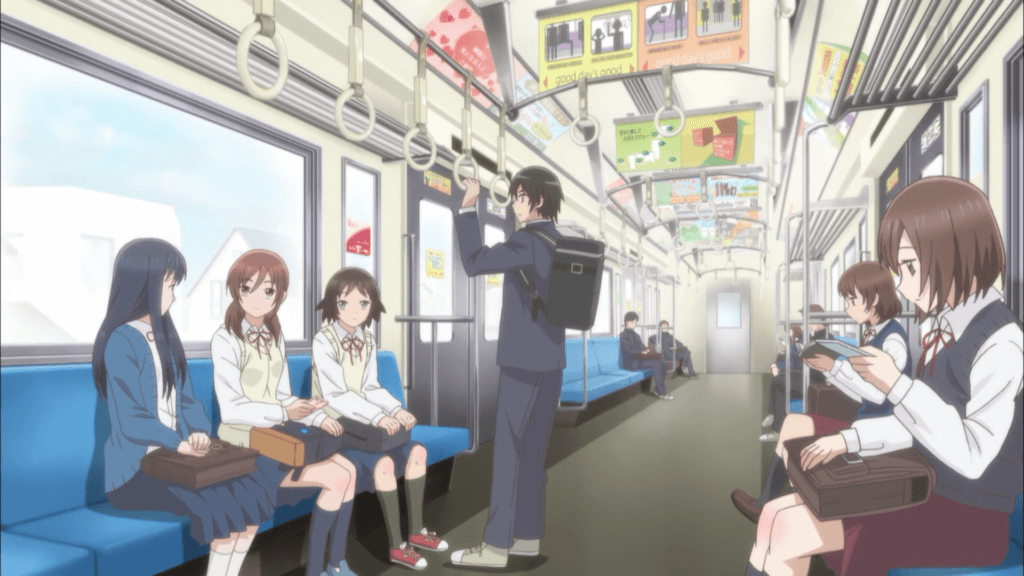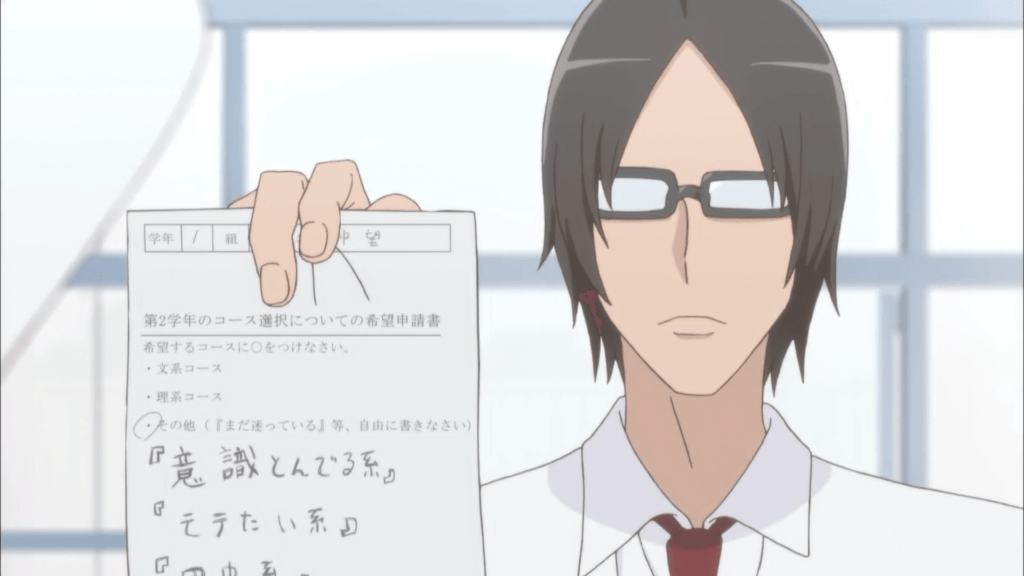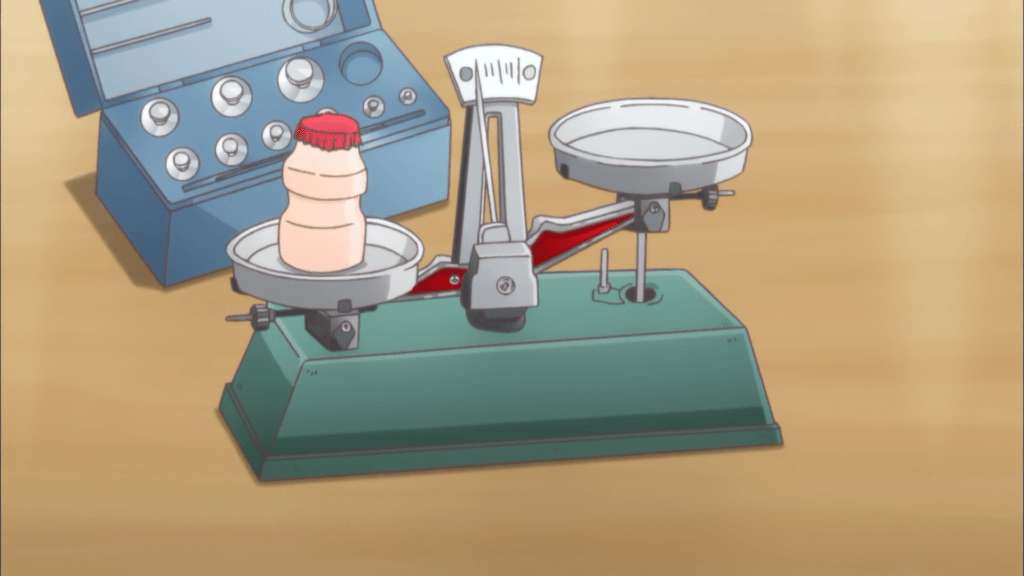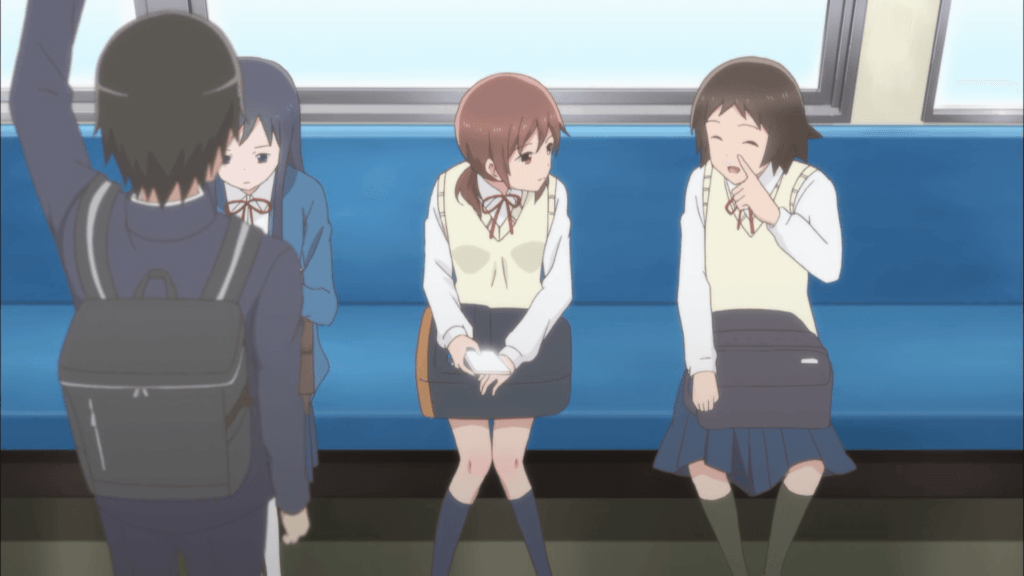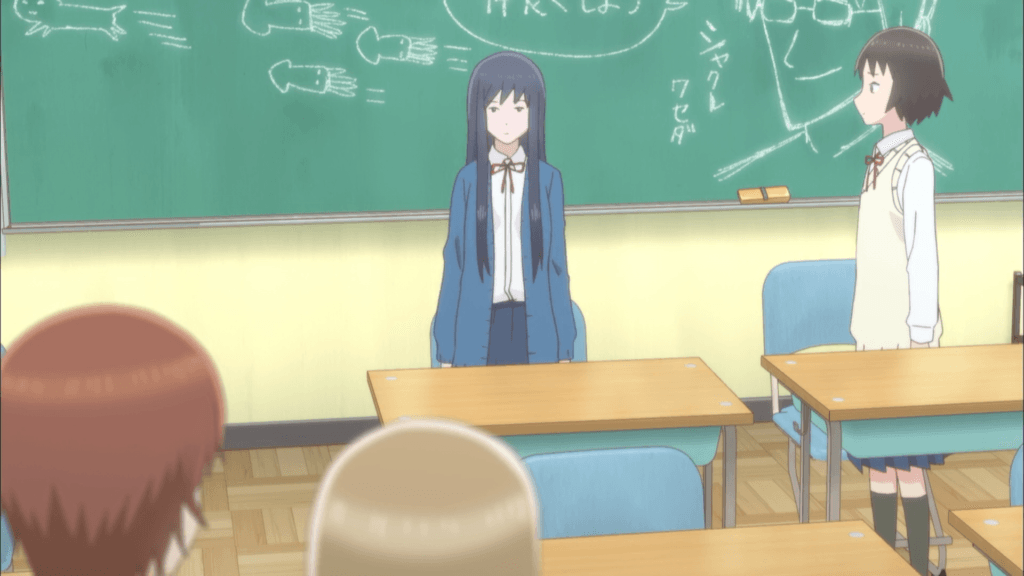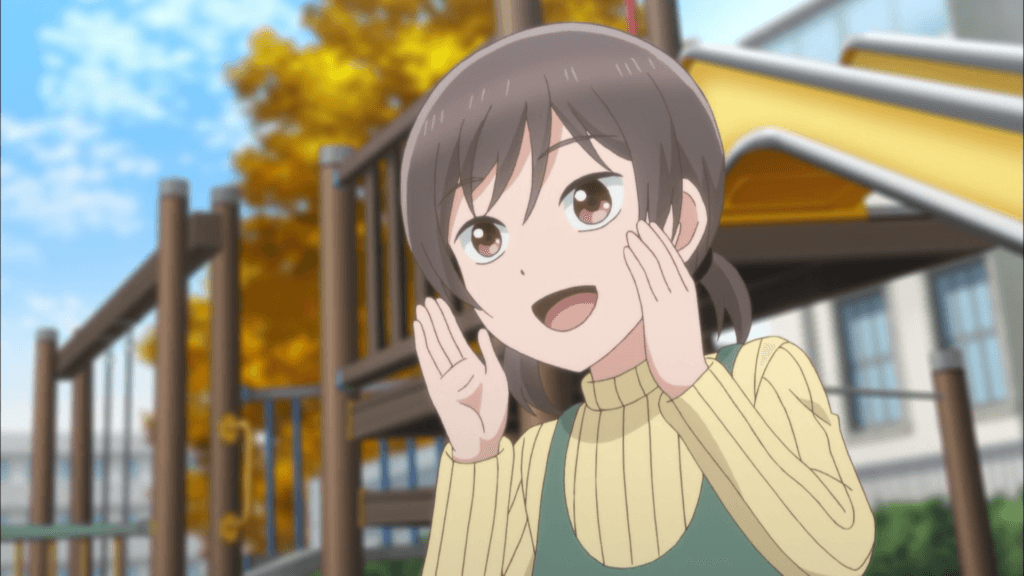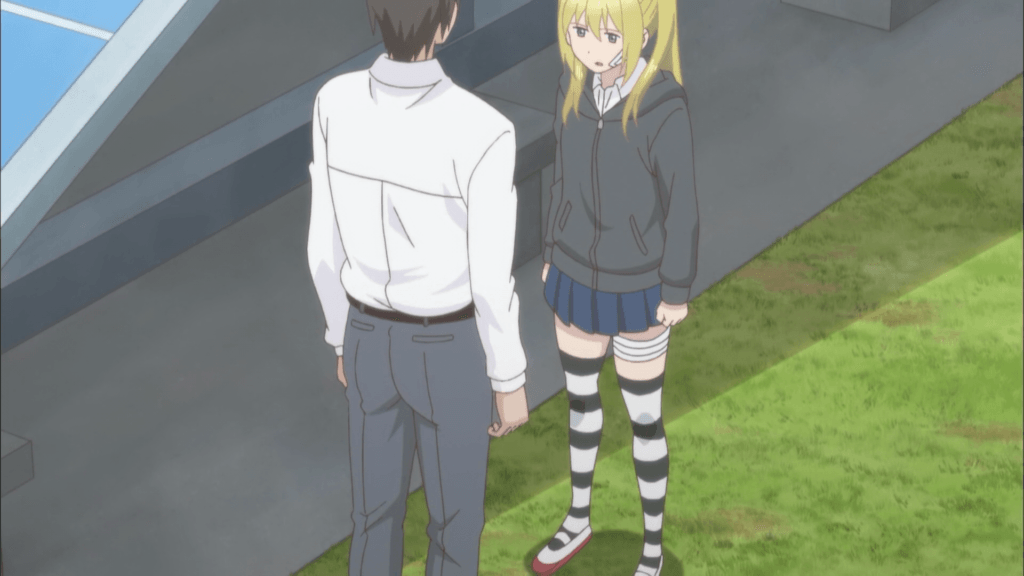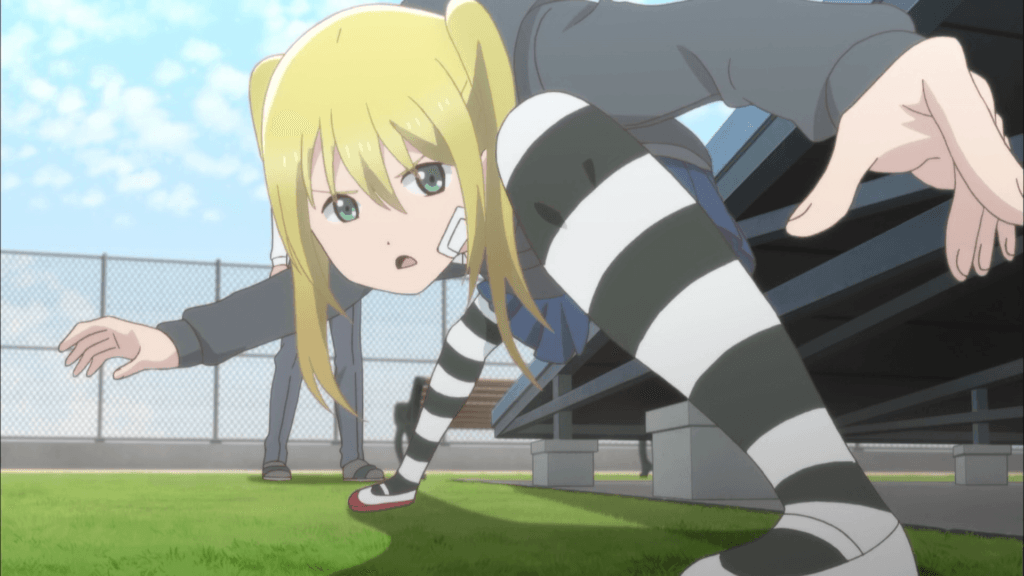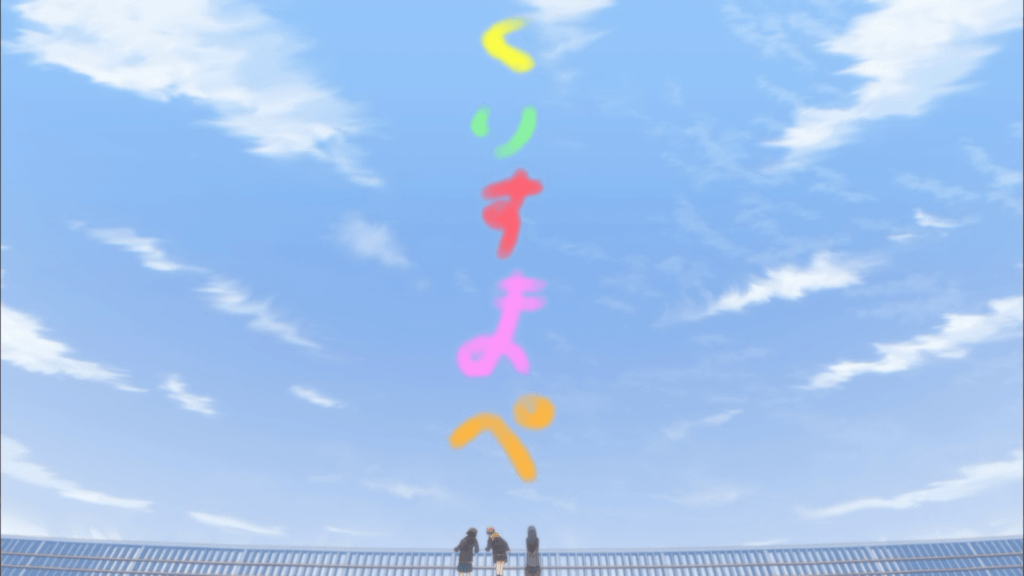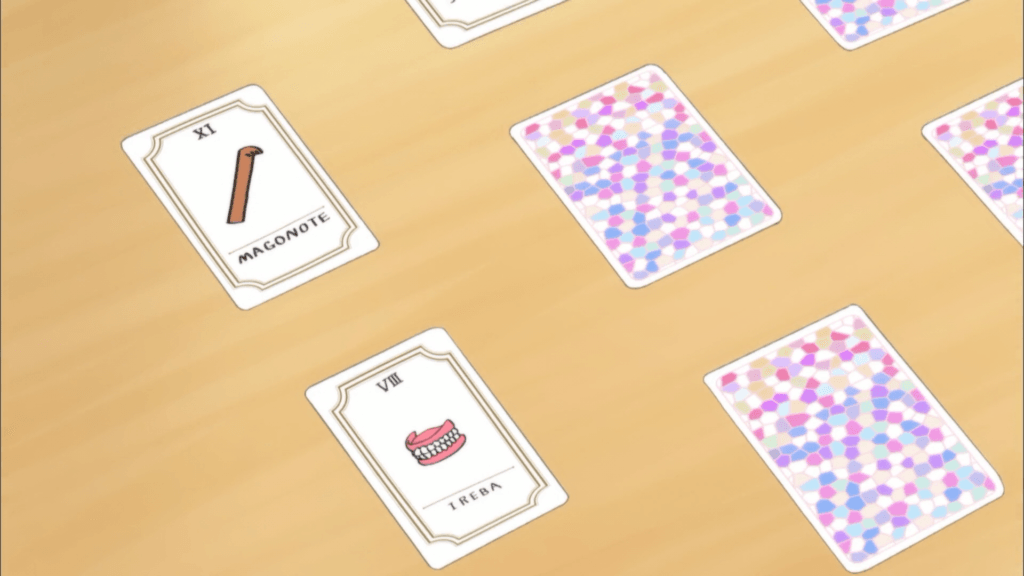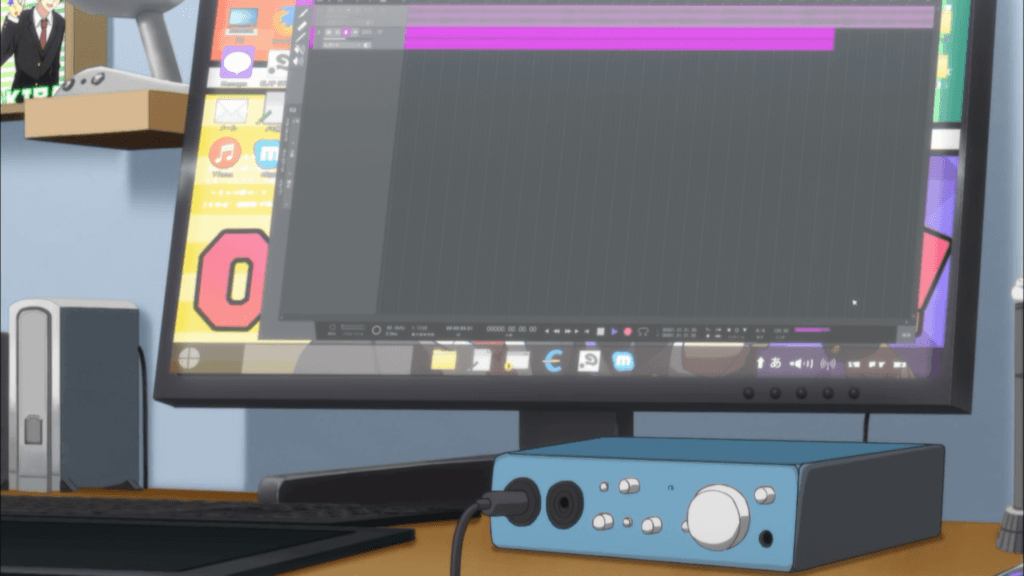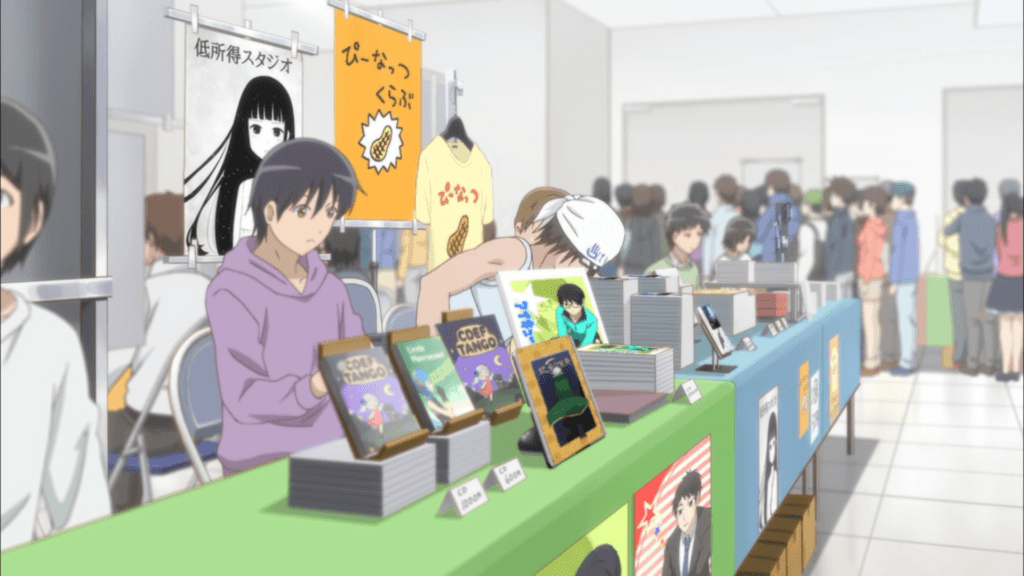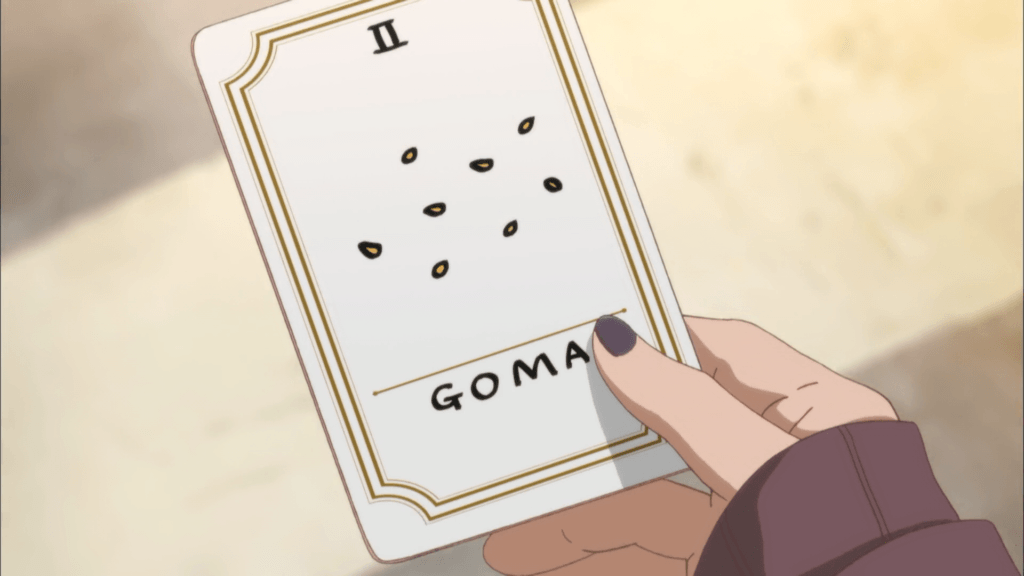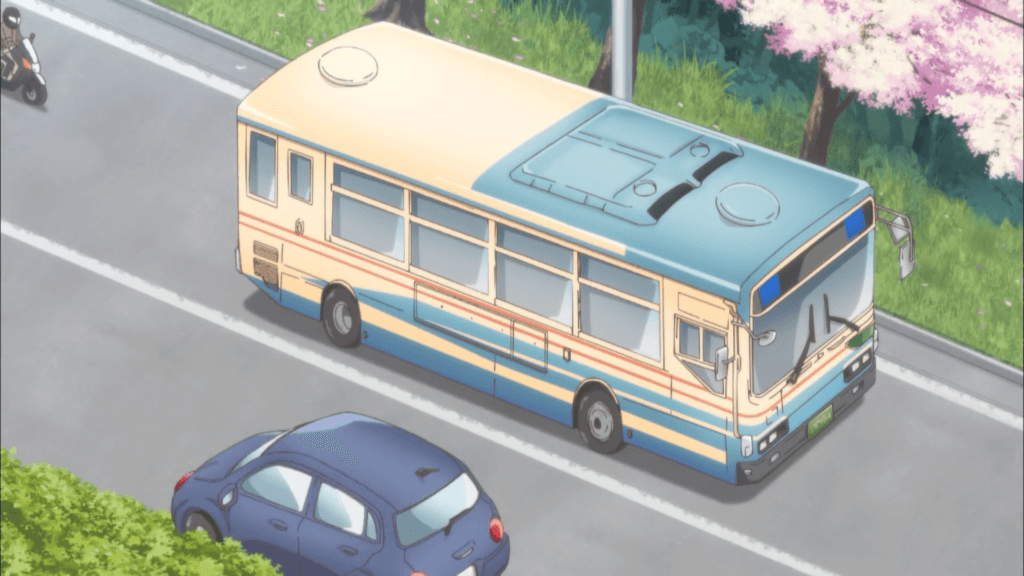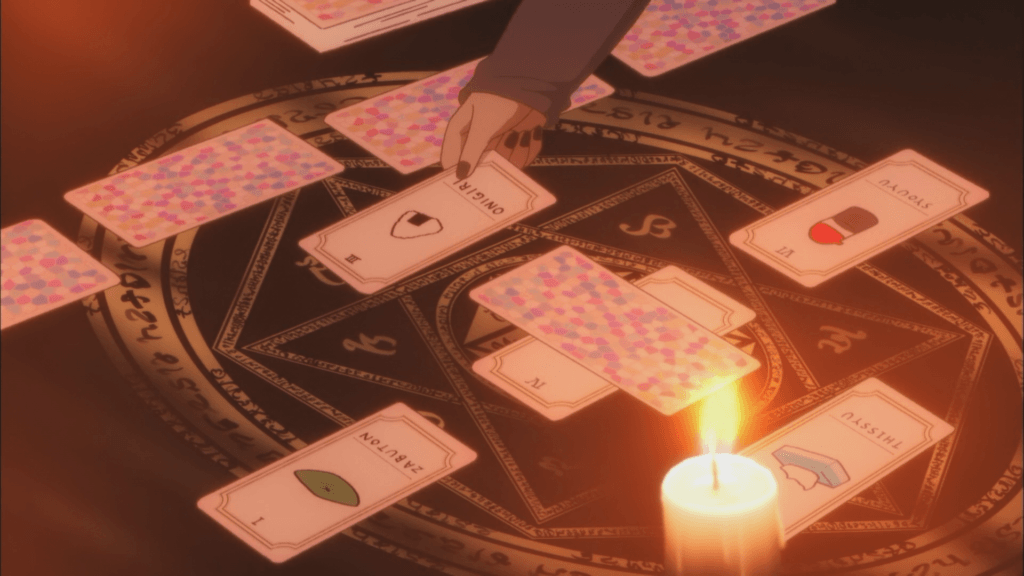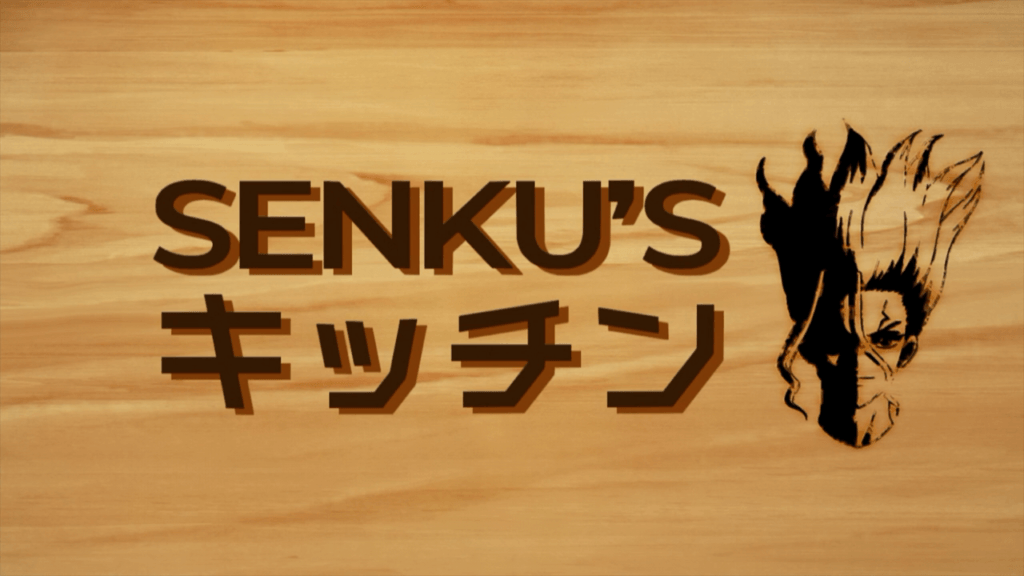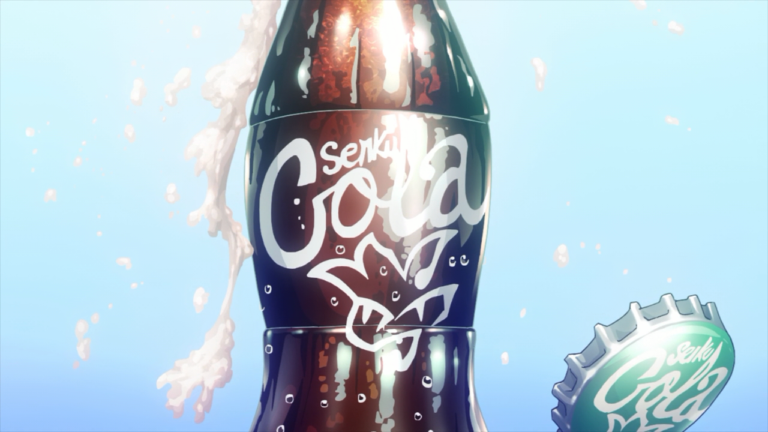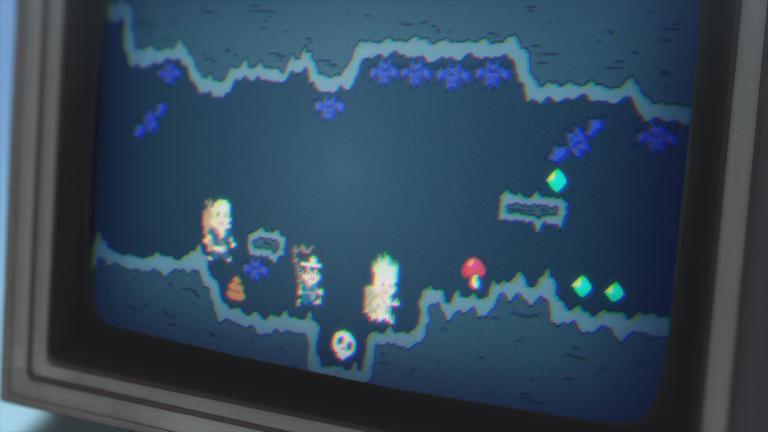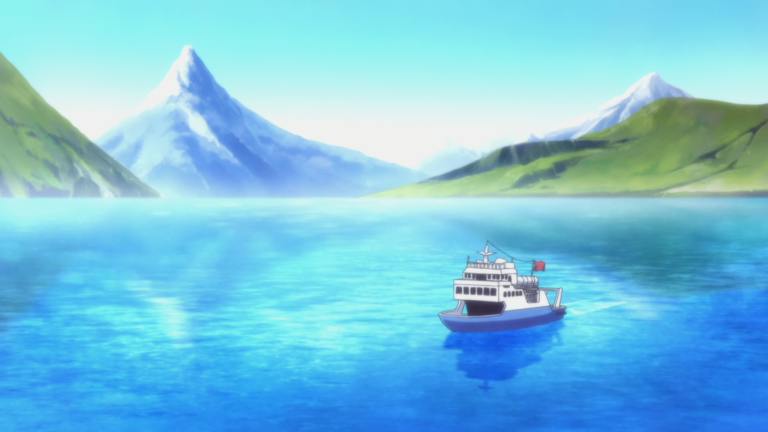Parodies, references and notes explanation for Joshikousei no Mudazukai / Wasteful Days of High School Girls episodes 10 and 11.
Episode 10
“Gattan gotton” is the onomatopoeia for the sound of the train moving along the tracks. The “gattan gotton” sound effects were made by Robo the whole time, and we could see her lipsync as well.
The official subtitles for some reason made a joke with the word “DERAILING” which was confusing didn’t really make sense.
The three choices on Baka‘s questionnaire sheet were:
『意識とんでる系』(roughly, “consciousness flying type”)
『モテたい系』(literally, “wanna be popular type”)
『田中系』(literally, “Tanaka type”, and Tanaka being her family name)
The weight on the scale resembles the distinctive Yakult bottle drink.
The official subtitles translated “ijigen poketto” (literally, “different dimension pocket”) as “4th dimensional pocket”. However, it is actually a parody of the Doraemon “4th dimensional pocket” which is “yonjigen poketto“.
On the chalkboard, next to the drawing of what seems to be Waseda, is the writing “シャクレ ワセダ” which literally means “protruding chin Waseda“. More “シャクレ ワセダ” can be found in episode 11.
In this scene, the official subtitles translate Loli‘s line as “I can’t stand that look you’ve got on your face!”. However, the Japanese line was “omae ga sonna kao shiteru no tte sugee kishoku warii” which was a slangy way of saying “your making that kind of face is incredibly sickening”. The official translation made it seem more like Loli was being kind and worried as opposed to rather rude and grossed out.
In official translation, Wota’s “dorokei” was translated as “cops and robbers”. However, “keidoro” is the more common variant for the name of the game and means “cops and robbers” in an abbreviated kind of way, where “keiji” means “police detective” and “dorobou” means “robber”. So the reaction of some would be to say “isn’t it keidoro?”.
In the official subtitles, Robo’s “kinaga ni matteru” line is translated as “I shall be waiting”. More literally, it could be “I shall be casually waiting” with an emphasis on not being too eager about it.
The rap by Yamai was noted for being similar in style to Japanese rap rock group Dragon Ash.
And, perhaps as expected, Yamai‘s lines about “leaving her bag at the ramen store and causing trouble for her parents” are a parody of the lines from the Dragon Ash song “GRATEFUL DAYS“. The original song’s lines were all the same except for the place being the high school instead of the ramen store.
Original: “kaban nara okippanashi ni shitekita koukou ni maji oya ni meiwaku kaketa hontou ni” (literally, “If it’s the bag, I left it at the high school. Serious. Caused my parents trouble. Really.“)
Yamai‘s lines: “kaban nara okippanashi ni shitekita raamen ya ni maji oya ni meiwaku kaketa hontou ni” (literally, “If it’s the bag, I left it at the ramen store. Serious. Caused my parents trouble. Really.”).
Yamai’s last line “maji gomen” (literally, “seriously sorry”) was probably a pun with “men” which means “noodles” and part of the word “raamen” (literally, “ramen“).
Episode 11
The actual Japanese and translations of Baka’s random stuff were:
くつべら (“kutsubera” meaning “shoehorn“)
りんぼーだんす (“rinboo dansu” meaning “limbo dance“)
すっぽん (“suppon” meaning “Chinese soft-shelled turtle (Pelodiscus sinensis)”)
まっぴるまに (“mappiruma ni” meaning “in broad daylight”)
Pe is the onomatopoeia for spitting saliva out.
“くりすまぺ” as in the cloud writing can literally mean “christma— pe” which can be like someone saying “christmas” but then stopping before the last “s” sound and then spitting in contempt.
“Kutsushita” literally refers to “sock(s)” in Japanese and are written with the “shoe” and “down” kanji together (“靴下”). The particular drawing of the sock appeared to have had a hole at the toe end (for anyone who didn’t notice).
- “Magonote” (孫の手) is literally “grandchild’s hand”, but refers to the backscratching tools in Japanese.
- “ireba” refers to dentures.
“Surume” refers specifically to dried shredded squid.
- On the computer screen are various parodies of logos such as Firefox, Line(?), iTunes, Skype and Windows 10 Start button. The taskbar of the computer also seems to resemble Windows 10 taskbar
- The blue box on the desk is the PreSonus AudioBox iTwo
The “animety” in the background is a parody of animate the company logo.
The “ぴーなっつくらぶ” in the background literally means “peanut(s) club”.
This scene where Wota sits hugging her legs on her bed in her unlit room and says “Hidoi yo. Amari da yo.” (literally “It’s cruel. It’s too much.”) may be a reference or inspired by a scene from Mahou Shoujo Madoka Magica where the main character Madoka sits the same way in her unlit room and says “Amari da yo. Hidosugiru yo.” (literally, “It’s too much. It’s too cruel.”). Both were in response to realising some kind of horrible truth.
“Goma” means “sesame seeds”.
Screenshot credits: ©ビーノ/KADOKAWA/女子高生の無駄づかい製作委員会
